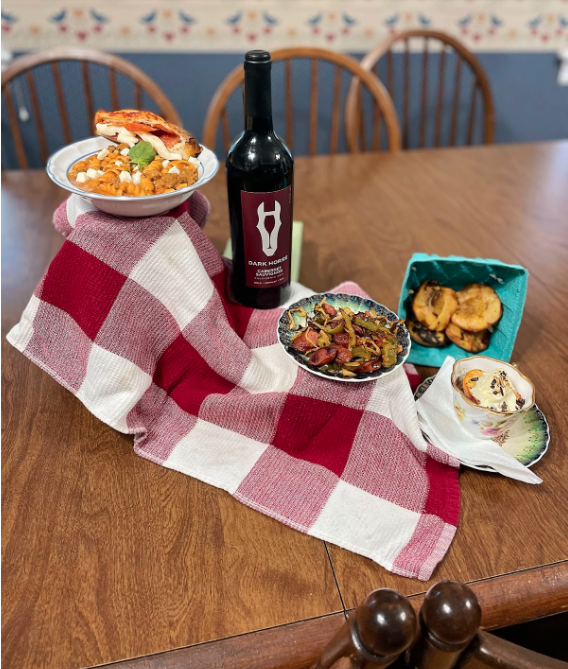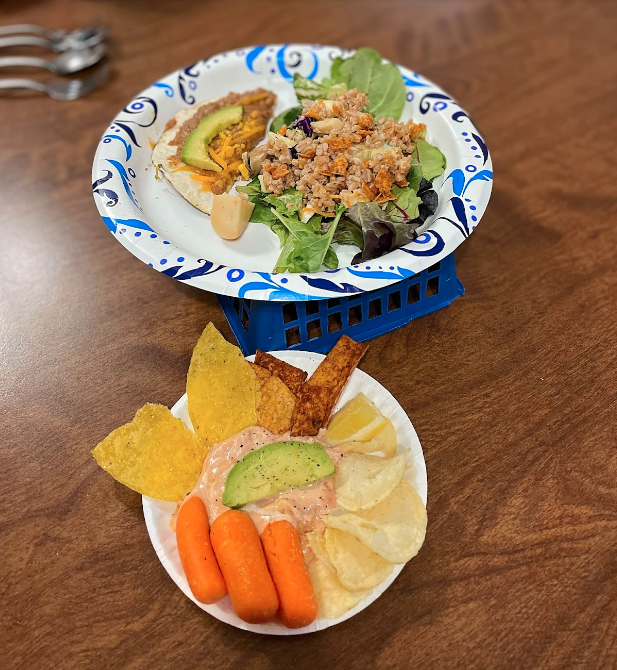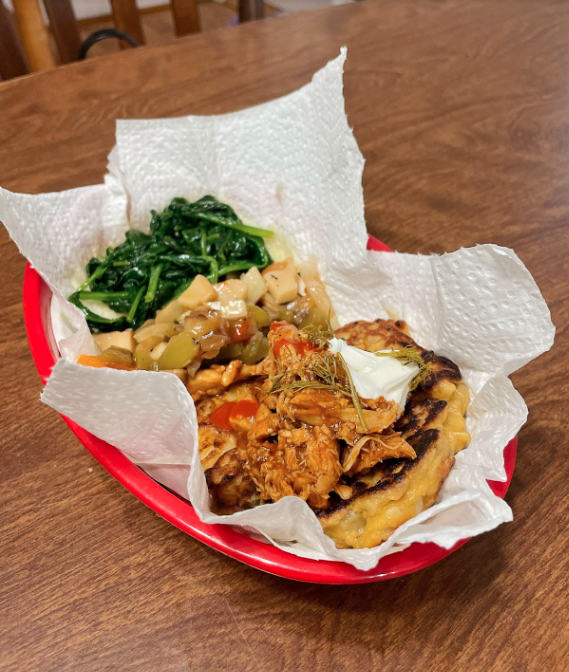Cultivate Food Fight: What leftovers taught me about teamwork and collaboration
The best lessons I’ve ever learned about teamwork came from repurposing a tray of taco meat. It all started with a small community organization working to reduce food waste in South Central Pennsylvania.
The Gleaning Project
As part of a recent in-person retreat, Team Cultivate had the opportunity to spend an afternoon supporting The Gleaning Project, a South Central Pennsylvania community initiative that focuses on the dual goals of supporting food-insecure individuals and families and reducing food waste from local farms. Through a combination of “gleaning”, or re-allocating the excess produce that farmers can’t sell, and donations, the team at The Gleaning Project provides quality food to local residents in a respectful and supportive atmosphere that centers empathy and community care.
Our team had a blast reorganizing the walk-in freezer, picking produce from the community garden, and cleaning the stand where folks come to choose their groceries. We also learned a lot about the impacts of food waste on the environment more broadly, and on local communities. Cultivators are special because they creatively solve the problems that they see to create a positive impact beyond themselves. While The Gleaning Project is not a large organization, we feel very much aligned with its mission and the change they are cultivating in their community.
Cultivate Test Kitchen
But, back to the taco meat. Inspired by our newfound understanding on the social, economic, and environmental benefits of gleaning and reducing food waste, on the last day of our retreat, Cultivate CEO, Steve Garguilo, gathered us in the kitchen with a challenge. On a table in the center of the kitchen stood all of the leftover food from the week. Steve broke us into teams and gave us one hour to create an entirely new meal out of the available leftover ingredients.
Our small but mighty group of twelve sprang into action and with one oven, one barbeque, and limited utensils, created the meal that is largely regarded as the best of the trip (and we had some GREAT meals). Some standouts: Learning Designer, Stephanie’s potato salad latkes were so good that she wound up winning Kitchen MVP! In his second week on the job Chief of Staff, Christopher, created an incredible penne ala vodka (sans vodka) out of repurposed taco meat. Measurement and Analytics Lead, Maureen, created a farro frenzy with an incredible salad that I’ve been trying to recreate ever since. Each and every component was delicious, transformed by creative teamwork into something better than the sum of its original ingredients.
The Lessons
What does this have to do with you, dear reader? I know that gathering your team for a Chopped-style challenge is typically not feasible, especially in our increasingly remote world. But, the lessons from this experience can easily be brought to your own teams, no kitchen required!
Get out of your comfort zone together: In the day-to-day operations of a company or team, everyone tends to stick to their role, operating in their lane, and navigating existing hierarchies and relationships. At Cultivate, we build learning programs and engage in strategic and research-based work so, dropping our team into the kitchen presented a new challenge and fresh opportunities to work together in ways that we may not have accessed in our typical work.
Embrace unique talents: On the small team I was part of (Team Beef!), we collaborated on our overall meal plan before moving into action mode. Christopher took on the main dish, Jake created a world-class dessert, and Carrie Ann and I collaborated on appetizers and presentation, meaning we all got a chance to let our creativity shine through while contributing to the team in a meaningful way. By making space for your teammates’ interests and individual talents, you create more possibilities for creative solutions.
Trust your team: You could say that this exercise required a lot of trust…we were literally eating the results! Because the outcome was high-stakes, we had to lean into trust, believing that our teammates would try their best. In return, we had to each work our hardest to ensure the trust of our colleagues was earned and respected.
Choose collaboration over competition: While there were technically three teams in a competition to make the best meal in a limited time, each team consistently helped the others. From stirring a pot before it boiled over, to sharing ingredients and utensils, to Team Veggie’s mid-competition pause to share a snack they made, everyone worked together to make sure everyone’s meal was finished on time.
Make time to play: As you’ve probably noticed, this kitchen experiment was incredibly silly. Taking time to play and get a bit goofy with your team can resolve tensions, showing you the people behind the work personas that we can sometimes be hidden behind. In the spirit of play, when things got messy or didn’t work out, we were able to move forward and try something else, without taking it too seriously. Culture can be built on many things, but I happen to think laughter is a crucial ingredient.
When I think back on our retreat, this hour holds some of my fondest memories, biggest surprises, and greatest learnings. It is an encapsulation of our team at its very best, and I am so grateful to have experienced it. Despite the competition, in the end, we all sat down to eat together. Team Veggie, Team Chicken, or Team Beef… at the end of the day we’re all Team Cultivate. And that’s what matters.
Want to start experimenting with your own team in meaningful ways? Sign up for our free Empowered Cultivator Lab email course with your team!






